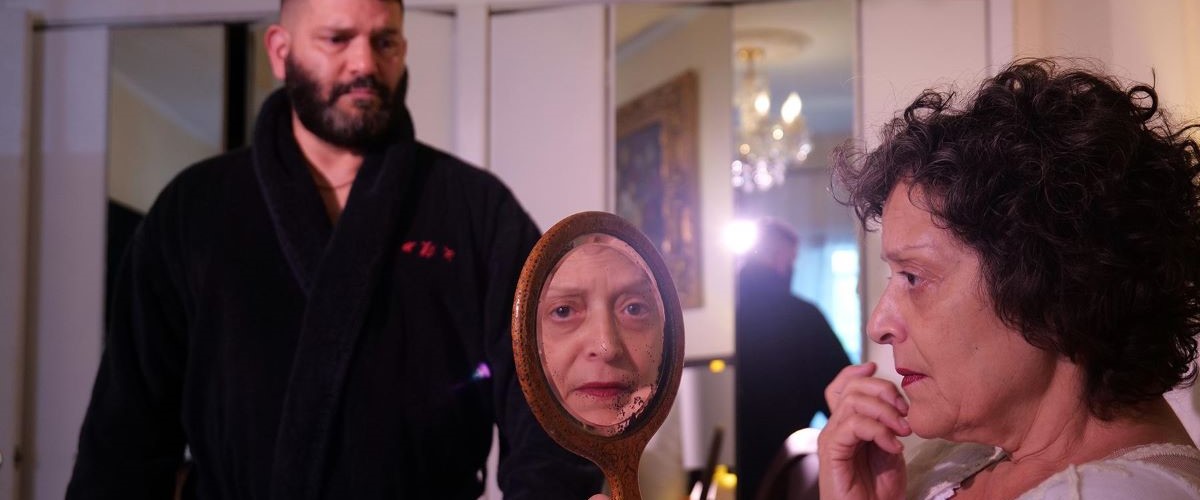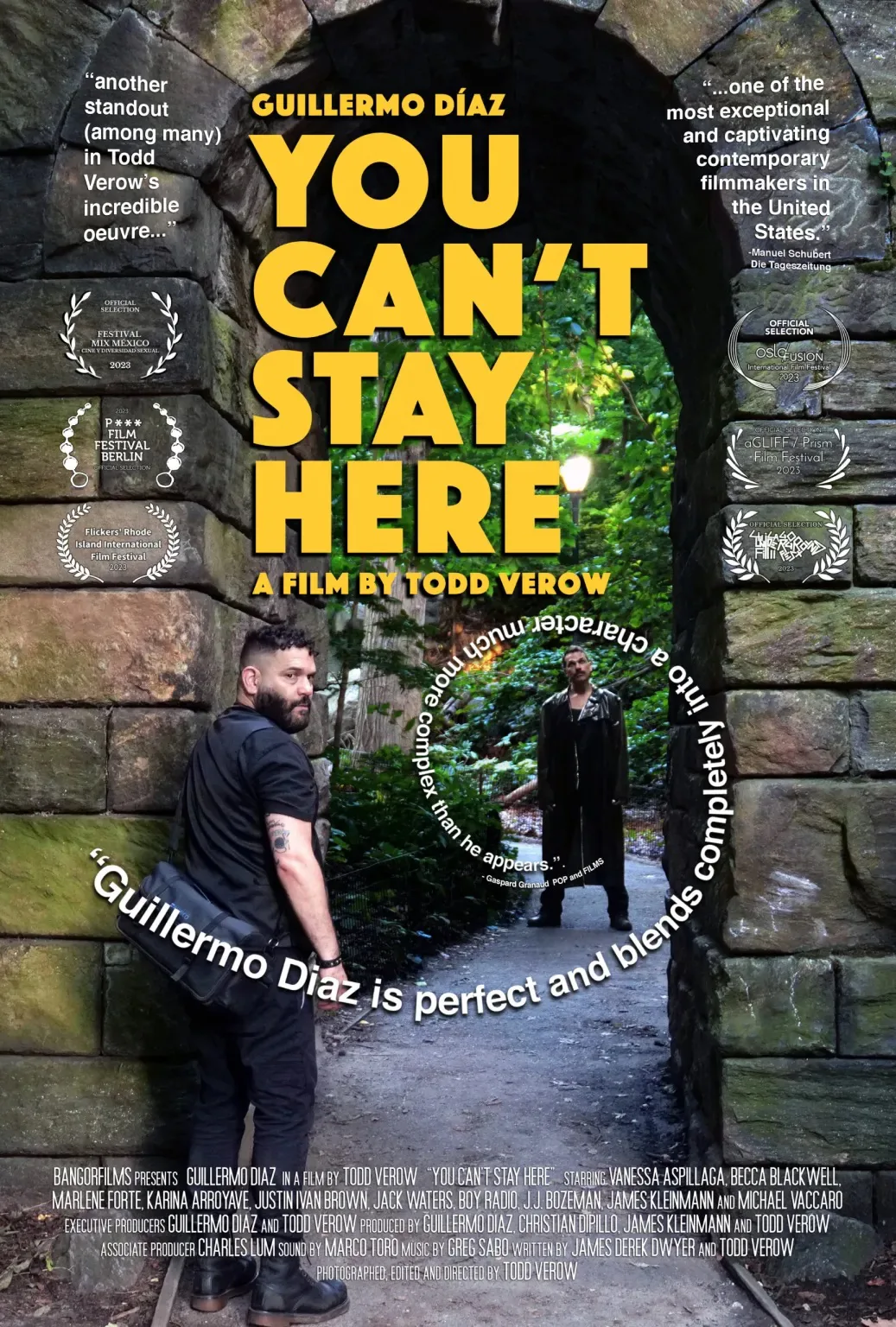Todd Verow’s thriller “You Can’t Stay Here” takes viewers into the heart of the Ramble, Central Park’s hook-up hot spot immortalized in William Friedkin’s “Cruising,” for a strange mystery loosely inspired by real events. It’s 1993, and the AIDS crisis is still at its deadliest. Despite the risk and the constant nuisance of police harassment, gay men continue to find community and each other in the sun-strewn wooded haven hidden in plain sight. Rick (Guillermo Díaz), a budding photographer, finds peace, affection, and subjects to photograph in the Ramble, including kind souls like Hale (Becca Blackwell) and regulars like the aptly named Raccoon Man. When a tall blonde stranger (Justin Ivan Brown) interrupts the tranquility and begins to murder men in the Ramble, Rick seeks out the truth before more men are killed.
Verow, who wrote the script with his writing partner James Derek Dwyer, incorporates many familiar queer narratives and supernatural elements for a story with many twists and turns, some of which work better than others. In flashbacks and dreams, Rick’s past traumas reveal the end of his marriage with his wife (Karina Arroyave) after she caught him naked with a man in their apartment, the sadness he feels when hugging his son (Andrew LaFerrera) goodbye, the guilt over his mother’s (Marlene Forte) Alzheimer’s and painful accusations that his father left them because Rick was gay. That in itself is a lot to cope with even before a demonic popper-poppin’ vamp commences a killing spree in Rick’s neck of the woods.
Influenced by movies like “Cruising,” “Peeping Tom,” and “Blow-Up,” the script works up quite a bit of suspense—especially when Rick is playing both voyeur as photographer and detective, as well as the target—but struggles to sustain such anxiety in proximity to a clumsy voiceover reading of Rick’s inner monologue and an amateur supporting cast. When Rick decides to return to the forbidden scene of the crime, he tells the audience, “Of course, I returned. Never is never a really long time. I always get sucked back in. All is forgotten, forsaken, forlorn for loins. The brain shuts down and the body takes over.” This is not a one-time occurrence but a running inner monologue that takes the mystery away from Díaz’s performance.
As Rick, Díaz is the tender but tough spirit in the film. His performance channels Rick’s pain from his past and present so clearly that any flashbacks or references to things that happened before the movie seem almost superfluous. Mostly dressed in black, with no intentions of standing out, he seems to be grieving; using his camera to connect with others in the Ramble before allowing himself to be vulnerable. Brown as his nemesis, the killer, makes good on his threatening trench coat presence with a razor-sharp knife and piercing blue eyes. There is no remorse or softness in his character, and in confronting this demon, Rick is able to find his confidence.
Verow, who also served as cinematographer on “You Can’t Stay Here,” makes do with the film’s low budget scrappiness, but it’s an aesthetic choice that doesn’t always work, much like when a supporting character acts so out-of-sorts that it pulls you out of the emotions of the scene. The movie looks too digital, too crisp, taking the audience out of the 1990s and into the 2020s. It’s a gamble that doesn’t pay off, and in scenes like purple-ish day-for-night shots and those meant to take place in a club, it really looks worse for wear. The same could be said for the film’s sound, which isn’t mixed well. The mics on set didn’t account for echoes or other rookie mistakes. Not even Greg Sabo’s heavy-handed synth score can soften the need for retakes or investment in better equipment.
“You Can’t Stay Here” perhaps does not invite repeated viewings, but for those undeterred by non-actors and a busy script, there is Díaz’s evocative performance to savor. He is the film’s heart and soul, playing the script with dedication and seriousness while others in the scene try to ham things up for strained laughs. His performance feels genuine and grounded in a movie that’s like “Blow-Up” meets “Cruising” meets a vampire as a possible metaphor for AIDS. Díaz’s expressive eyes cut through the darkest spots of the Ramble without barely a word, giving “You Can’t Stay Here” the haunting feeling even a sharp-dressed demon couldn’t conjure.




















